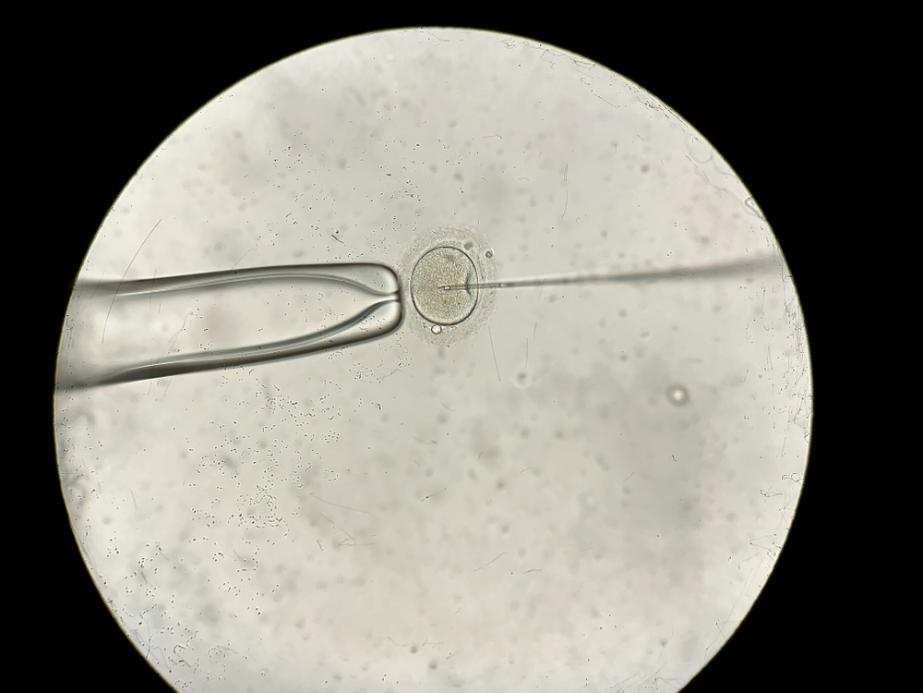According to the Centers for Disease Control and Prevention, 326,468 assisted reproduction technology (ART) cycles were performed at 449 clinics, resulting in 79,942 live-born infants in 2020. This is approximately 2% of all infants born in the United States.
ART involves all fertility treatments in which eggs or embryos are handled. The main type of ART is in vitro fertilization (IVF).
This procedure involves stimulating a woman’s ovaries to produce eggs, surgically extracting them, fertilizing the eggs with sperm in a laboratory, and then transferring the embryos into the uterus.
ART provides fertility options:
- For people who are struggling with infertility
- To avoid passing on known inherited diseases
- To store genetic material for later, such as after having chemotherapy
- For same-sex couples who want to have children
Surrogacy
Another fertility option is surrogacy. This is when another woman, other than the genetic mother, carries the pregnancy and gives birth.
The laws regarding surrogacy vary from state to state. Most, but not all, states permit surrogacy.
Some states that permit surrogacy require that the intended parents have wills that name a guardian for their minor children before a surrogacy agreement can be completed.
If you are considering surrogacy, it is essential that you follow all of the necessary processes to establish legal parentage.
Some states allow pre-birth orders, while others require adoption proceedings after a child is born.
Cryopreservation
If the genetic material (eggs, sperm, and embryos) is not used immediately, it can be frozen for future use via cryopreservation.
Parents who use cryopreservation need to have a well-drafted written agreement that clearly states who should have custody of the genetic material in the following circumstances:
- Death of a parent
- Divorce
- Unforeseen circumstances that affect a partner’s ability to parent
It is a good idea to draft a legal agreement that addresses your personal situation rather than use a standard form provided by a medical facility.
These agreements need to specify whether a person wishes to give their genetic material to a spouse or partner.
If the genetic material is intended to be used for posthumous conception, it is important for parents to clearly state their intention to provide for posthumous children.
Cryopreservation can be very expensive, so it is a good idea to factor in these expenses when doing financial planning. Set aside money to pay these expenses when writing an estate plan or specifying trust distributions for this purpose.
Another factor to consider is whether you agree to the extraction and use of your genetic material while you are alive.
Adding this information to your living will or power of attorney can make your wishes known even if you cannot express them due to illness or unconsciousness.
Children born after the death of a parent
Laws are in place to protect the inheritance of a child conceived before a parent’s death but born after they pass.
These laws give them the same rights as children conceived and born before a parent’s death.
ART using artificial insemination or in-vitro fertilization has made it possible for a child to be conceived and born after a parent’s death.
The laws addressing situations where a child is conceived and born after a parent’s death vary by state. Since state laws vary, it is essential to meet with an experienced estate attorney familiar with laws concerning ART in your state.
- In some states, posthumously conceived children born within 36 months after their biological parent’s death are considered heirs of the deceased parent as long as there is documentation providing clear and convincing evidence showing the parent’s intent for the child or children to be considered their heir.
- Some states require that the child must be born within 24 months.
- Some states require written consent signed by the deceased parent and maintained by the licensed assisting medical provider, showing that the deceased parent intended to be the child’s parent.
- States such as Florida exclude posthumously conceived children from inheriting if they are not named in the deceased parent’s will.
As you can see, these laws vary by state. If an estate plan is not intentionally written, it is possible that a parent could unintentionally disinherit their own child.
If you intend to use ART to conceive a child or already have a child conceived using ART, your children must be specifically included in your estate plan.
This also applies to others, such as grandparents, who intend to include posthumously conceived children in their estate plans.
Remember that trusts and other estate plans may apply to more than one generation.
Therefore, all children and family members intended to benefit from the trust, including posthumously conceived children, should be explicitly named in the trust instrument.
State Laws Vary
Points to consider:
- Posthumously conceived children may be born years after a parent’s death. If a child is born after your personal representative distributes inheritance gifts, what should happen next?
Should the personal representative reacquire the gifts and redistribute them?
Setting a time limit in which a posthumously conceived child must be born in order to inherit property or money can help solve this problem, even if the child is expressly included as a beneficiary of a will or trust.
- In the 2012 case, Astrue v. Capato, the United States Supreme Court decided that a child conceived after the death of their biological father is only entitled to Social Security dependent benefits if the child was entitled to inherit from him under state law.
Since state law varies, parents of posthumously conceived children need to express their intention for their children to inherit from them using carefully drafted estate planning documents.
They should also comply with other state laws, such as those requiring that the assisting physician retain written documentation of the parent’s intention.
ART has been a life-changing solution for many families who want to have children. Contact us for assistance in planning for the financial future of your children.
We can also discuss your options for unused genetic material that remains after you pass away.
Contact The Katzner Law Group
You can schedule a call with us or reach us directly at 855.631.3457 to learn more about how best to plan today to protect those most important to you.








